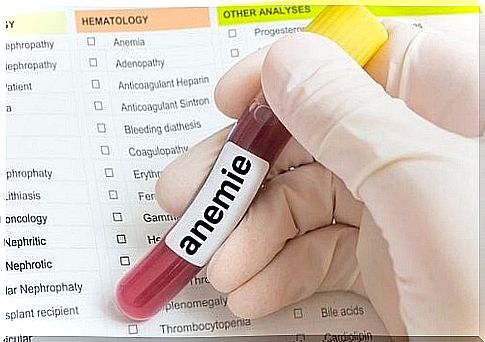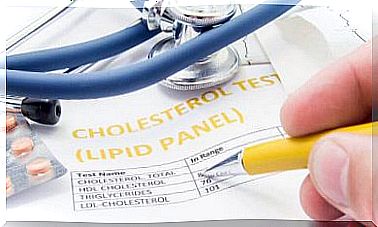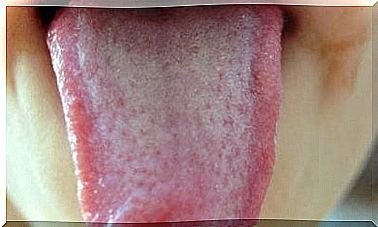The Consequences Of Iron Deficiency
The main sign of an iron deficiency is anemia. But this lack of iron has more consequences for your body. It is important that you get to know them.
If you think you may be taking too little of this nutrient, we recommend that you keep an eye out for the following symptoms.
Millions of people suffer from a deficiency of this nutrient. This deficiency occurs in both developed and underdeveloped countries. It is due to an insufficient absorption of iron.
No one should ignore or neglect an iron deficiency. Because it has harmful effects on health.
This mineral has many functions. One of the functions of iron is that it ensures the proper functioning of the hemoglobin that supplies all cells with oxygen.
It is indispensable for health. Since iron is only present in small amounts in the body, it is necessary that we absorb it through food. So what is especially important is that we follow a balanced and varied diet.
There are two types of iron:
- The first type is heme iron. You can find it in animal flesh. It is more easily absorbed by the body.
- Non-haem iron is the second kind. It’s in vegetables. The body does not absorb this type of iron as easily. That is why many vegetarians and vegans suffer from anemia.
Iron also plays a role in other areas:
- it helps in the production of components of the blood
- plays a role in DNA synthesis
- is part of the breathing process
- and it supports the maintenance of the immune system
And that’s not all. Iron also plays a role in many chemical reactions and is of great importance in the production and release of energy.
You can have your blood tested to see if you have an iron deficiency:
- Normal values for adult males are between eighty and one hundred and eighty µg/dl.
- In adult women this is between sixty and one hundred and sixty µg/dl.
- The values in children vary between fifty and one hundred and twenty µg/dl.
- In children under one year of age, the values should be between one hundred and two hundred and fifty µg/dl.
If your iron levels are higher than the average, this may be due to certain conditions. Here are some examples:
- Hemochromatosis
- Hepatitis
- Hemolytic Anemia
- iron poisoning
Similarly, your iron levels may drop in some specific circumstances. We give some examples:
- Pregnancy
- Malnutrition
- Cancer
- Chronic blood loss
- Chronic hypermenorrhea

Pay attention to certain signals from your body. It is trying to tell you that you are deficient in this essential nutrient.
If you experience more than one of these symptoms, you should consult a doctor and have a blood test done.
1. Weakness and fatigue
You sleep for many hours or you rest several times during the day. Yet you always feel languid and you have no strength. You also have a hard time getting up in the morning and you fall asleep everywhere.
This may be related to the demanding daily tasks. But weakness or fatigue can also be caused by an iron deficiency.
This nutrient ensures that the oxygen is brought to the cells. So if it’s missing, our tissues don’t receive “fuel” and fail to work.
You have less vitality and you feel extremely tired after performing light activities. This may therefore be related to an iron deficiency.
2. Poor performance and bad mood
Deficiency of this nutrient has a direct impact on your emotional state. So it’s normal to feel very irritable, depressed, or moody when your body doesn’t have enough iron.
Add fatigue to that, and you’ll understand the consequences: difficulty doing your job, studying well, or completing daily tasks.
Take a look at what’s been going wrong lately. Can you still concentrate on your activities?
In addition, an iron deficiency has a negative impact on memory and attention span. You have to put in double the effort to do everything you are trying to do. You will also quickly lose your motivation. This even happens with the things you love to do.
3. Paleness
When you have anemia, chances are your skin will become paler or whiter than usual.
This is because the skin and tissues of the mucous membranes do not receive enough oxygen.
Some people have a whitish color on the inside of the skin under the eyes (where the eyelashes begin).
4. Dizziness and Nausea
When you have an iron deficiency, the amount of oxygen in the body cells is too low. As a result, you will feel dizzy all the time.
In addition, you will feel that you are not getting enough air when you try to breathe. You may also inhale and exhale faster and more often (polypnea).
When people do not absorb enough amounts of iron, this can become very serious. In these severe cases, they can pass out at any time of the day. What also happens is that they experience ringing in the ears or suffer from lipodystrophy.
5. Palpitations
Do you sometimes suffer from rapid heart palpitations even though you do not make any physical effort? This can also be related to an iron deficiency.
When the blood is not circulating properly, the heart has to work much harder to pump the blood to all organs.
This can lead to tachycardia, arrhythmia and even acute myocardial infarction.
6. Brittle Nails and Hair Loss
Nails that break easily, thin nails or nails with white areas close to the cuticle… these can all be due to an iron deficiency.
The reason your hair falls out is that the blood flowing to the head is low in oxygen. So the hair follicles are not fed.









